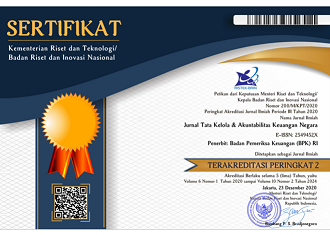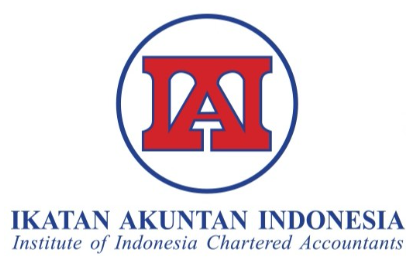The role of obedience pressure and self-monitoring in public procurement fraud: An experimental analysis
DOI:
https://doi.org/10.28986/jtaken.v10i1.1592Keywords:
obedience pressure, self monitoring, public procurement fraudAbstract
Fraud in public procurement is a critical issue; it erodes public trust and disrupts service delivery. Understanding the factors behind procurement fraud is vital for creating effective prevention strategies. While previous studies have linked obedience pressure to unethical behavior, they have not fully examined the role of self-monitoring. This study addresses this gap by investigating the impact of obedience pressure on fraudulent procurement behaviors, with self-monitoring as a moderating factor. Using an experimental method and a 2x2 factorial design, the study involved accounting students from the University of Muhammadiyah Jakarta. Findings indicate that self-monitoring significantly influences the relationship between obedience pressure and fraud: high self-monitoring individuals do not reduce fraudulent behavior under obedience pressure, unlike their low self-monitoring counterparts. Conversely, highly self-monitoring individuals exhibit less fraud when not under obedience pressure compared to those who experience such pressure. The study concludes that regardless of self-monitoring levels, subordinates tend to follow superior orders, underscoring the need for strict supervision to curb unethical practices. This research enhances attribution theory by highlighting that obedience pressure from superiors is a key factor driving fraud in the procurement process.
References
Aditya, M., Pradhana, B., Wirakusuma, M. G., Mediatrix, M., Sari, R., & Ariyanto, D. (2022). Integritas, obedience pressure, kompleksitas tugas dan kualitas audit dengan pengalaman kerja sebagai variabel moderasi. E-Jurnal Akuntansi, 32(7), 1912-1926. https://doi.org/10.24843/EJA.2022.v32.i07.p18
Alnakhli, H., Singh, R., Agnihotri, R., & Itani, O. S. (2020). From cognition to action: The effect of thought self-leadership strategies and self-monitoring on adaptive selling behavior. Journal of Business & Industrial Marketing, 35(12), 1915-1927. https://doi.org/10.1108/JBIM-06-2019-0302
Ametepe, P. K., Banwo, A. O., & Arilesere, M. S. (2023). Amoral behavior, control climate, job insecurity, and fraudulent intentions among bank employees. International Journal of Ethics & Systems, 39(4), 781-803. https://doi.org/10.1108/IJOES-06-2022-0146
Anastasia, D., & Lasdi, L. (2022). The effect of compensation schemes, obedience pressure, and self-efficacy on budgetary slack. Journal of Applied Finance & Accounting, 9(2), 63-72. https://doi.org/10.21512/jafa.v9i2.8291.
Baihaqi, H. M., Maisyarah., & Auditya, L. (2017). The effect of obedience pressure and perceived responsibility on budgetary slack [Paper Presentation]. Simposium Nasional Akuntansi XX, Jember.
Barani, Z., Garkaz, M., & Matoufi, A. (2023). The effect of obedience and compliance pressures on financial reporting by considering the moderating effect of fairness. Financial & Behavioral Researches in Accounting, 3(2), 23-42. magiran.com/p2646718
Bawa, A. A., & Yasa, G. W. (2016). Efek moderasi locus of control pada hubungan otoritas atasan dan kecurangan akuntansi. E-Jurnal Ekonomi dan Bisnis Universitas Udayana, 5(5), 1057-1086. https://ojs.unud.ac.id/index.php/eeb/article/view/16394
Bian, Q., & Forsythe, S. (2012). Purchase intention for luxury brands: a cross-cultural comparison. Journal of Business Research, 65(10), 1443–1451. https://doi.org/10.1016/j.jbusres.2011.10.010
Bishop, C. C., DeZoort, F. T., & Hermanson, D. R. (2017). The effect of CEO social influence pressure and CFO accounting experience on CFO financial reporting decisions. AUDITING: A Journal of Practice & Theory, 36(1), 21–41. https://doi.org/10.2308/ajpt-51507
Brink, A. G., Gouldman, A., & Victoravich, L. M. (2018). The effects of organizational risk appetite and social pressure on aggressive financial reporting behavior. Behavioral Research in Accounting, 30(2), 23–36. https://doi.org/10.2308/bria-51987
Brink, A. G., Tang, F., & Yang, L. (2016). The impact of estimate source and social pressure on auditors’ fair value estimate choices. Behavioral Research in Accounting, 28(2), 29-40. https://doi.org/10.2308/bria-51457
Bryant, D. U., Mitcham, M., Araiza, A. R., & Man Leung, W. M. (2011). The interaction of self-monitoring and organizational position on perceived effort. Journal of Managerial Psychology, 26(2), 138–154. https://doi.org/10.1108/02683941111102173
Budiardjo, M. (2017). Dasar ilmu politik. Edisi revisi. Gramedia Pustaka Utama.
Cahyaningrum, C. D., Ayuananda, T. I., & Arifin. (2017). Whistleblowing: Studi eksperimental dalam kejujuran dan tekanan ketaatan. Journal of Accounting & Management Innovation, 1(2), 143-158.
Chang, C. H., Rosen, C. C., Siemieniec, G. M., & Johnson, R. E. (2012). Perceptions of organizational politics and employee citizenship behaviors: conscientiousness and self-monitoring as moderators. Journal of Business & Psychology, 27(4), 395-406. https://doi.org/10.1007/s10869-012-9257-6
Chong, V. K., & Syarifuddin, I. (2010). The effect of obedience pressure and authoritarianism on managers' project evaluation decisions. Advances in Accounting, Incorporating Advances in International Accounting, 26(2), 185-194. https://doi.org/10.1016/j.adiac.2010.04.004
Cressey, D. R. (1953). Other people’s money: A study in the social psychology of embezzlement. Free Press.
Dobbins, G. H., Long, W. S., Dedrick, E. J., & Clemons, T. C. (1990). The role of self-monitoring and gender on leader emergence: A laboratory and field study. Journal of Management, 16(3), 609–618. https://doi.org/10.1177/014920639001600306
Feng, M., Ge, W., Luo, S., & Shevlin, T. (2011). Why do CFOs become involved in material accounting manipulations? Journal of Accounting & Economics, 51(1-2), 21-36. https://doi.org/10.1016/j.jacceco.2010.09.005
Gangestad, S. W., & Snyder, M. (2000). Self-monitoring: Appraisal and reappraisal. Psychological Bulletin, 126(4), 530–555. https://doi.org/10.1037/0033-2909.126.4.530
Ghozali, I. (2018). Aplikasi analisis multivariat dengan program IBM SPSS 25. Penerbit Universitas Diponegoro.
Girtz, R., Hill, J., & Owens, M. (2017). Risk preferences, responsibility, and self-monitoring in a stag hunt. Journal of Behavioral & Experimental Economics, 68, 53–61. https://doi.org/10.1016/j.socec.2017.03.004
Guo, L. (2022). The effects of self-monitoring on strategy use and academic performance: A meta-analysis. International Journal of Educational Research, 112, 1-19. https://doi.org/10.1016/j.ijer.2022.101939
Harrison, P. D., West, S. G., & Renaeu, J. H. (1988). Initial attributions and information seeking by superiors and subordinates variance investigations. Accounting Review, 63(2), 307–320. http://www.jstor.org/stable/248108
Hartmann, F. G. H., & Maas, V. S. (2010). Why business unit controllers create budget slack: Involvement in management, social pressure, and Machiavellianism. Behavioral Research in Accounting, 22(2), 27-49. https://doi.org/10.2308/bria.2010.22.2.27
Herianti, E. (2021). Pengaruh locus of control terhadap tindakan kecurangan dalam pengadaan barang dan jasa di bawah tekanan ketaatan. Jurnal Akuntansi Dan Governance, 1(2), 67-78. https://doi.org/10.24853/jago.1.2.67-78
Indonesia Corruption Watch. (2023). Laporan hasil pemantauan tren penindakan kasus korupsi tahun 2022: Korupsi Lintas Trias Politika. https://antikorupsi.org/sites/default/files/dokumen/Narasi%20Laporan%20Tren%20Penindakan%20Korupsi%20Tahun%202022.pdf
Innocent, I. O., & Tomi, S. H. (2020). Fraud reduction in Nigerian deposit money banks: An ethical approach. Ilorin Journal of Human Resource Management (IJHRM), 4(2), 173-182.
Kalra, A., Itani, O. S., & Sun, S. (2023). Turning role conflict into performance: Assessing the moderating role of self-monitoring, manager trust, and manager identification. Journal of Service Theory & Practice, 33(3), 436-461. https://doi.org/10.1108/JSTP-08-2022-0163
Karakostas, A., & Zizzo, D. J. (2016). Compliance and the power of authority. Journal of Economic Behavior & Organization, 124, 67-80. https://doi.org/10.1016/j.jebo.2015.09.016
Kauppinen-Räisänen, H., Björk, P., Lönnström, A., & Jauffret, M. N. (2018). How consumers’ need for uniqueness, self-monitoring, and social identity affect their choices when luxury brands visually shout versus whisper. Journal of Business Research, 84, 72-81. https://doi.org/10.1016/j.jbusres.2017.11.012
Kurniawan, A. (2021). Politik dan akuntansi keperilakuan: membuka kotak pandora perilaku korupsi politik dari dimensi multidisiplin ilmu. Penerbit: Kerjasama ANDI dan BPFE.
Liyanarachchi, G., & Newdick, C. (2009). The impact of moral reasoning and retaliation on whistle-blowing: New Zealand evidence. Journal of Business Ethics, 89(1), 37-57. https://doi.org/10.1007/s10551-008-9983-x
Lord, A. T., & Todd DeZoort, F. (2001). The impact of commitment and moral reasoning on auditors’ responses to social influence pressure. Accounting, Organizations & Society, 26(3), 215-235. https://doi.org/10.1016/S0361-3682(00)00022-2
Mahmudi, M., & Supriyadi, S. (2019). The effects of religiosity on earnings management under obedience pressure. Journal of Economics, Business, and Accountancy Ventura, 22(1), 73-83. https://doi.org/10.14414/jebav.v22i1.1559
Mangkualam, K., Rusydi, A., Salsabila, A., Sumadi, A., & Septiyuanza, C. T. (2019). Efek mediasi monitoring by self pada hubungan antara watching by God dan perilaku mencontek. PSIKOLOGIKA: Jurnal Pemikiran dan Penelitian Psikologi, 24(1), 27-34.
Milgram, S. (1974). Obedience to authority: An experimental view. London: Tavistock Publications Ltd.
Morck, R. (2007, July). Behavioral finance in corporate governance – independent directors and non-executive chairs [NBER working paper No.10644]. https://doi.org/10.3386/w10644
Nafiati, L. (2018). Pengaruh tekanan ketaatan dan audit internal terhadap perilaku kecurangan pelaporan keuangan. Jurnal REKSA: Rekayasa Keuangan, Syariah Dan Audit, 5(1), 22-31. https://doi.org/10.12928/j.reksa.v5i1.155
Nafiati, L., & Ainy, R. (2022, August 10-11). The effect of obedience pressure and religiosity on fraudulent financial reporting [Paper presentation]. The 3rd International Conference of Business, Accounting, And Economics, ICBAE 2022, Purwokerto, Central Java. http://dx.doi.org/10.4108/eai.10-8-2022.2320824
Nahartyo, E. (2013). Desain dan implementasi riset eksperimen. UPP STIM YKPN.
Nasution, D., & Östermark, R. (2012). The impact of social pressures, locus of control, and professional commitment on auditors’ judgment: Indonesia evidence. Asian Review of Accounting, 20(2), 163-178. https://doi.org/10.1108/13217341211242204
Nguyen, L. A., O’Connell, B., Kend, M., Thi Pham, V. A. T., & Vesty, G. (2021). The likelihood of widespread accounting manipulation within an emerging economy. Journal of Accounting in Emerging Economies, 11(2), 312-339. https://doi.org/10.1108/JAEE-02-2020-0041
Nwanaka, C. (2022). Overview of the concept of fraud in Nigeria banking system. BW Academic Journal, 1(1), 31-38. https://www.bwjournal.org/index.php/bsjournal/article/view/780
O’Cass, A. (2000). A psychometric evaluation of a revised version of the lenox and wolfe revised self-monitoring scale. Psychology & Marketing, 17(5), 397-419. https://doi.org/10.1002/(SICI)1520-6793(200005)17:5<397::AID-MAR3>3.0.CO;2-D
O’Cass, A., & McEwen, H. (2004). Exploring consumer status and conspicuous consumption. Journal of Consumer Behaviour, 4(1), 25-39. https://doi.org/10.1002/cb.155
Pruijssers, J. L., Singer, G., Singer, Z., & Tsang, D. (2023). Social influence pressures and the risk preferences of aspiring financial market professionals. Journal of Accounting Education, 62, 1-20. https://doi.org/10.1016/j.jaccedu.2022.100828
Sitanala, T. F. (2019). Superior authority and fraudulent acts in goods and services procurement: The role of code of ethics. Jurnal Tata Kelola dan Akuntabilitas Keuangan Negara, 5(2), 139-155. https://doi.org/10.28986/jtaken.v5i2.374
Steers, R. M. (1988). Introduction to organizational behavior. Scott Foresman and Company.
Sujana, E., & Dewi, N. A. W. T. (2021). The effect of moral reasoning on intention to fraud in the procurement of goods and services under obedience pressure: An experimental study. Jurnal Ilmiah Akuntansi, 6(2), 413-434. https://doi.org/10.23887/jia.v6i2.38944
Taki, A., & Soroushyar, A. (2024). The moderating role of financial managers’ honesty-humility on aggressive financial reporting: Evidence from Iran. International Journal of Ethics & Systems, 40(2), 395-411. https://doi.org/10.1108/IJOES-07-2022-0154
Ulfa, U., & Utami, I. (2023). Obedience pressure and group pressure: an experimental study on whistleblowing. Jurnal Ekonomi dan Bisnis, 26(1), 123-140. https://doi.org/10.24914/jeb.v26i1.3950
Wolf, H., Spinath, F. M., Riemann, R., & Angleitner, A. (2009). Self-monitoring and personality: A behavioral-genetic study. Personality & Individual Differences, 47(1), 25-29. https://doi.org/10.1016/j.paid.2009.01.040
Yin, Y. (2017). Fund portfolio holdings and affiliated analyst’s objectivity: Do equity and employment relationship matter? Journal of Behavioral Finance, 19(1), 16-29. https://doi.org/10.1080/15427560.2017.1366493
Downloads
Submitted
Accepted
Published
How to Cite
Issue
Section
License
Copyright (c) 2024 Jurnal Tata Kelola dan Akuntabilitas Keuangan Negara

This work is licensed under a Creative Commons Attribution-ShareAlike 4.0 International License.

Jurnal Tata Kelola dan Akuntabilitas Keuangan Negara is licensed under
a Creative Commons Attribution-ShareAlike 4.0 International License





















